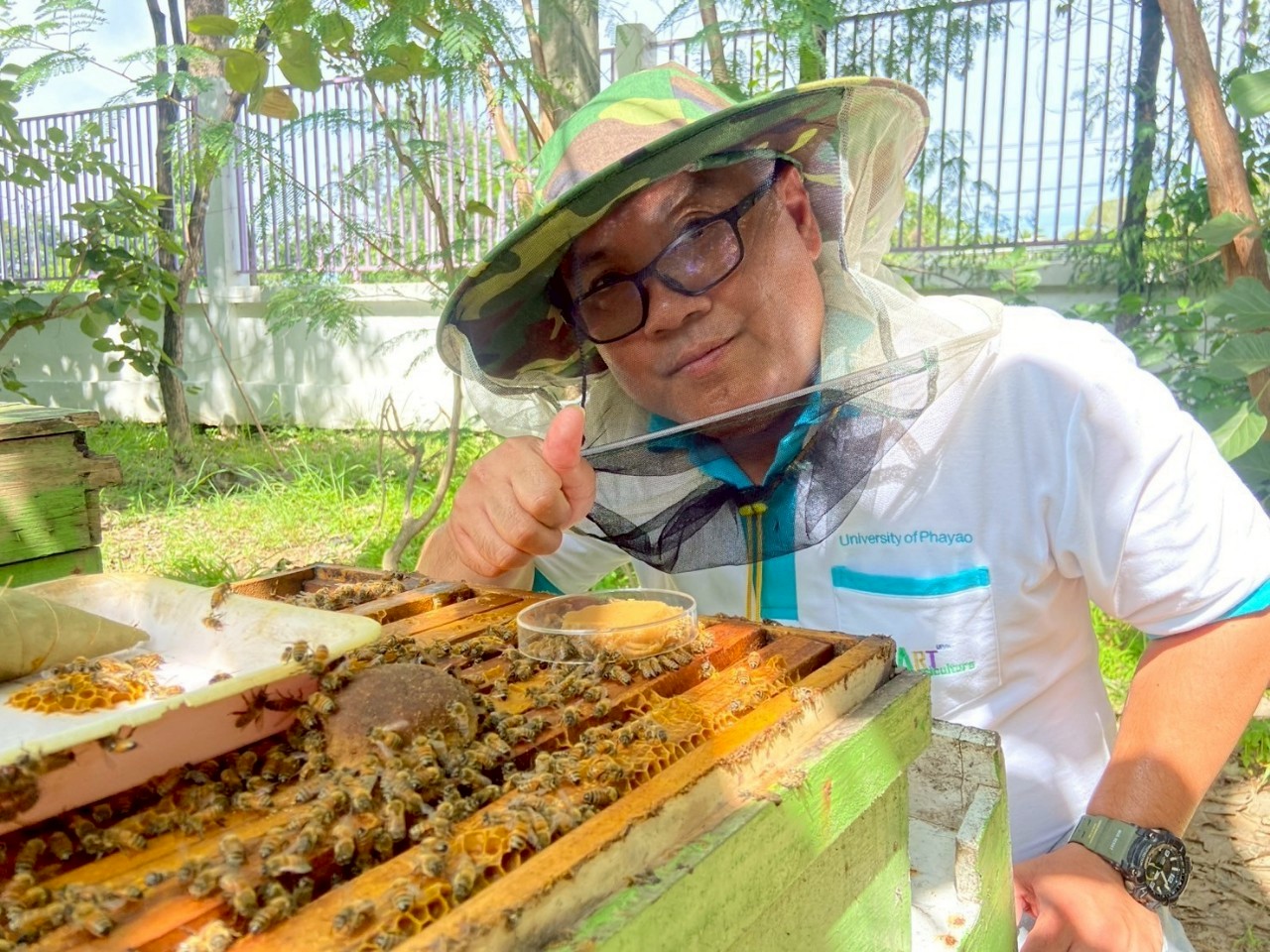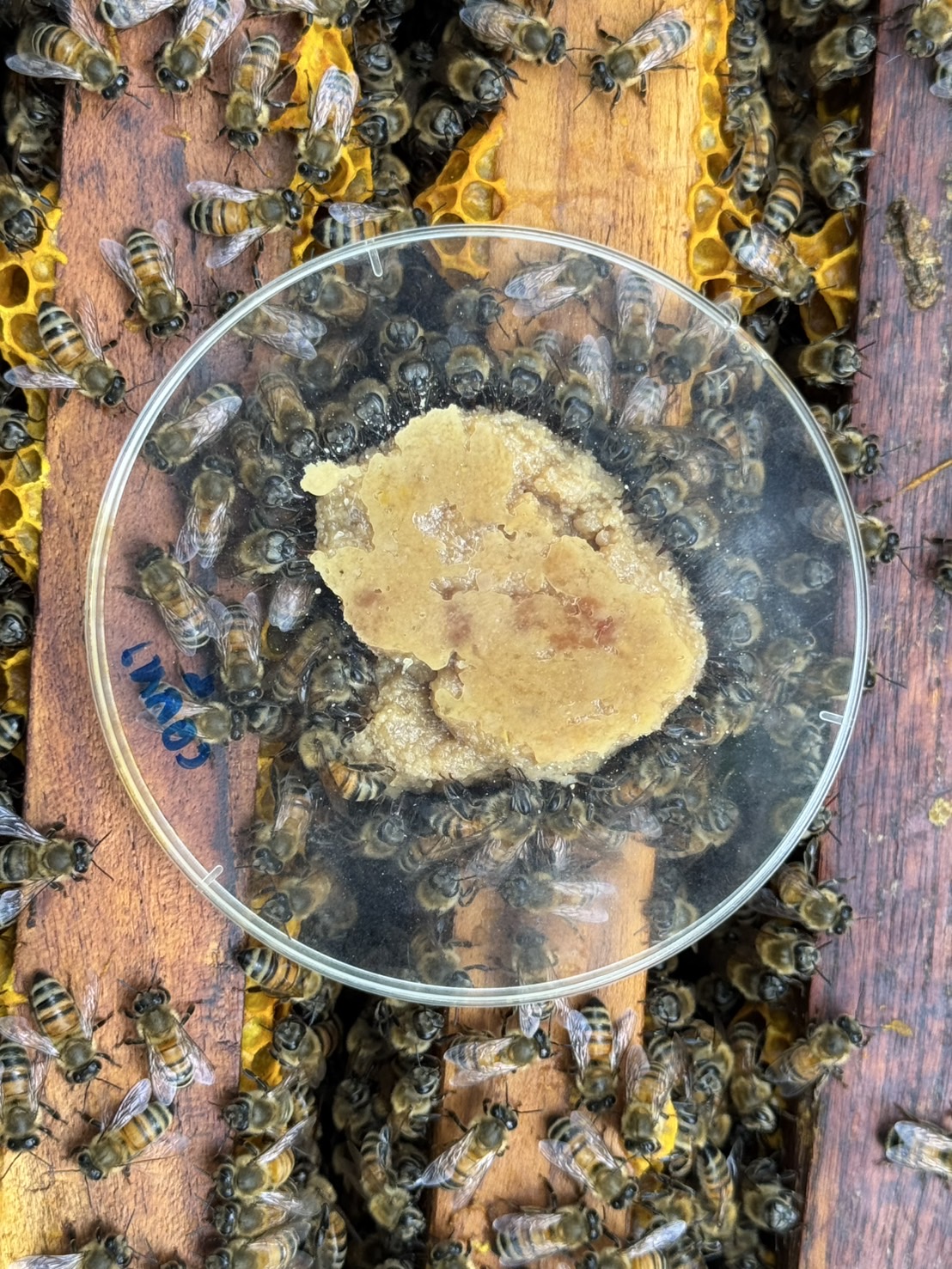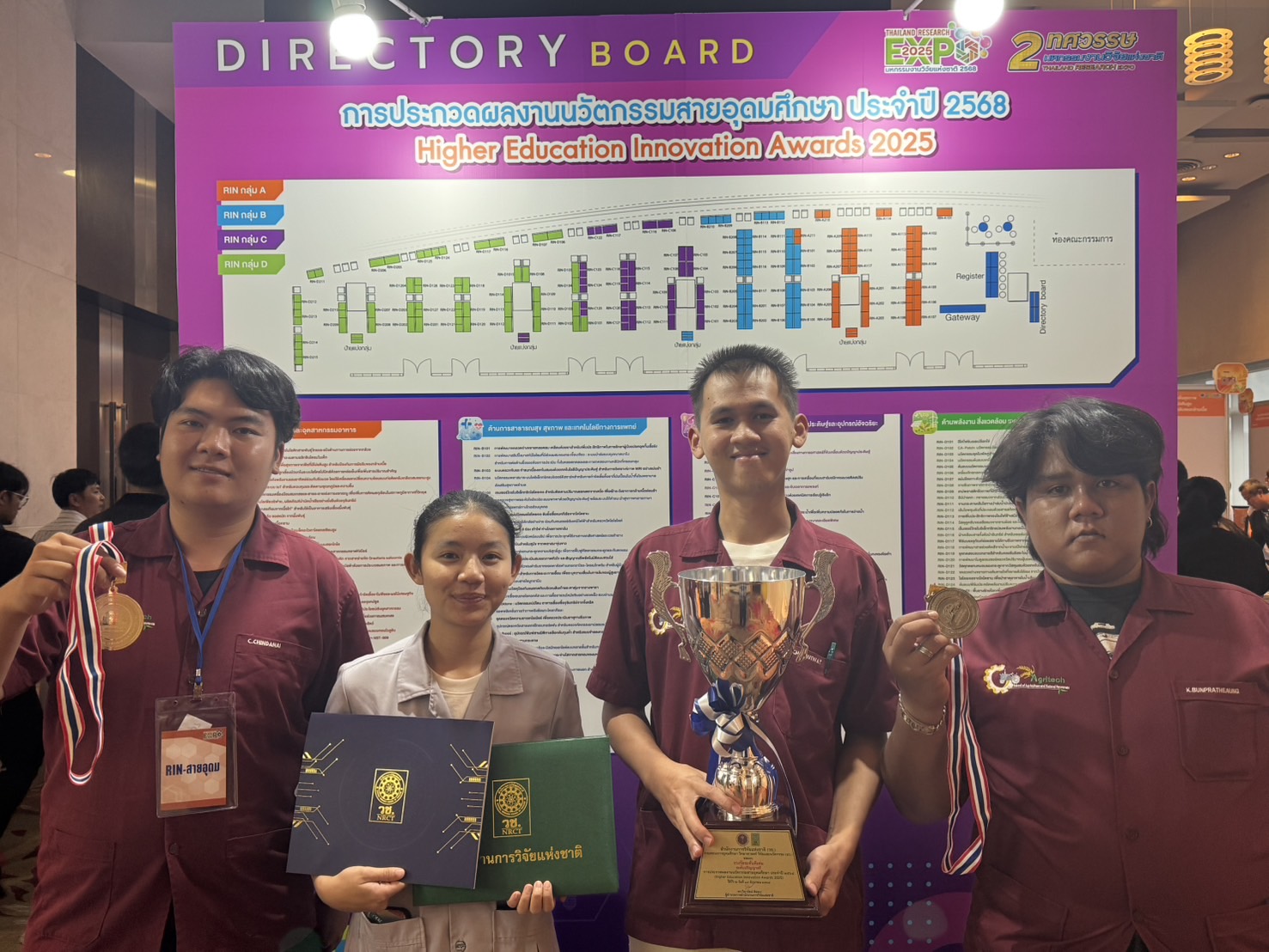Today, the world faces significant challenges related to food security and global warming. One of the most pressing concerns is the shortage of sustainable protein sources. As a result, researchers and the food industry are increasingly focused on identifying new protein sources that are safe, sustainable, and environmentally friendly. One promising alternative is insects, including bees, particularly in the form of larvae or pupae, which are rich in high-quality protein, essential amino acids, vitamins, and beneficial fats (Ghosh et al., 2020). In many regions of the world, particularly in Asia, Africa, and Latin America, bee larvae have been consumed as a local delicacy for centuries due to their high protein content, ease of digestion, and palatable taste.

However, a common question arises: "Do we really need to eat bees when we already have so many food options?" The idea of eating bees can be surprising or even objectionable to many, as bees are typically valued for their role in pollination and honey production rather than as a human food source (Kaya et al., 2023). Therefore, the issue is not merely about necessity, but rather about developing alternative protein sources to reduce reliance on traditional livestock, which consumes large amounts of resources and emits high levels of greenhouse gases. Moreover, using bees as a supplemental protein source offers an opportunity to enhance community food security and could serve as a survival strategy in the face of rapidly depleting natural resources (Gomes et al., 2024).
This topic is especially relevant to beekeepers in regions such as Northern Thailand, where nectar-producing plants bloom only during a few months each year. As a result, commercial honey harvesting is limited to just one or two times annually, while beekeepers must continue maintaining large bee populations year-round. This incurs costs in terms of labor, food, and time—without generating income during the off-season. While bee larvae are already consumed, a new question has emerged: How can we utilize adult bees?
Although adult bees have not traditionally been seen as edible, new ideas from circular economy and alternative protein concepts have led researchers to explore ways to process adult bees into food products—for example, fermenting adult bees into seasoning sauces (Danmek et al., 2025). This research presents a practical method of utilizing adult bees, reducing waste in beekeeping processes, and offering a new income-generating opportunity that could contribute to a more sustainable agricultural system in Thailand.

Therefore, instead of asking "What should we do with adult bees?", the better question may be: "How can we maximize the economic and ecological value of adult bees?"—a research challenge with great potential for development at the farm, community, and global levels.
In this context, a research team initiated a project aimed at developing a high-value product from adult bees, which are typically underutilized. The result was a novel product called "Fermented Seasoning Sauce from Apis mellifera", using biological and biotechnological knowledge (Deep Tech). Specifically, microorganisms such as Aspergillus oryzae were used to ferment and hydrolyze proteins from the bees, generating amino acids and natural flavor compounds. This unique product has been published in an international journal (Danmek et al., 2025) and is currently under petty patent application, aligning with SDG 9 (Industry, Innovation and Infrastructure) as part of the Reinventing University Project at the University of Phayao.
The initiative encourages hands-on learning where students engage in real-world problem-solving. For example, undergraduate students co-developed and implemented this innovation with model farmers, scaling it for household or community enterprise use. This effort has provided off-season income and is a prime example of circular resource utilization, aligning with SDG 4 (Quality Education), SDG 12 (Responsible Consumption and Production), and SDG 8 (Decent Work and Economic Growth). Additionally, this innovation contributes to food security by introducing an alternative protein source, addressing SDG 2 (Zero Hunger), and represents meaningful collaboration among universities, farmers, and supporting organizations, fulfilling SDG 17 (Partnerships for the Goals).
As a result of this work, students were recognized as key contributors to the "Fermented Bee Sauce" innovation, which earned the Silver Medal at the 2025 Higher Education Innovation Awards (Agriculture and Food Industry category), held from June 16–18, 2025, by the National Research Council of Thailand (NRCT). This is a clear demonstration of how deep technology can be translated into appropriate technology for sustainable, real-world community applications.
Simultaneously, as demand increases for adult bees—whether for pollination, honey production, or food product development—scaling up high-quality bee farming is crucial. This requires suitable and nutritious food sources, as good nutrition supports bee growth, health, longevity, and productivity. Hence, developing bee supplements and artificial pollen formulas is essential for sustainable and efficient beekeeping (Dastouri et al., 2007).
The research team has developed various "Artificial Pollen" formulas for Apis mellifera, using different protein sources such as soybeans (Khanchai et al., 2024), mulberry leaf protein (Danmek et al., 2024), and animal-based proteins like blood and meat proteins (Danmek et al., 2025). However, some of these formulas involve complex preparation steps or expensive ingredients, requiring context-specific selection by local beekeepers.

This topic has been integrated as a case study into the curriculum of students in Agricultural Technology at the University of Phayao. Students are involved in the design, development, and testing of new artificial pollen formulas using locally available, replicable, and simple ingredients that can be practically applied (life-long learning). Field trials were conducted with model farmers in Northern Thailand, resulting in a new innovation: "Artificial Pollen from Chicken Meat", which was awarded the Gold Medal (1st Place) at the same 2025 NRCT event. This clearly showcases the transformation of classroom innovations into practical, scalable technologies that support grassroots sustainable agriculture.
Furthermore, these innovations align with several SDGs, particularly SDG 13 (Climate Action), by improving bee productivity during periods of pollen shortage due to climate change. Returning to the initial question—“Do we really need to eat bees?”—the answer is not necessarily. Instead, we should recognize the multifaceted value of bees, particularly adult bees once considered waste, and explore how to transform them into valuable processed food products, such as fermented seasoning sauces. These innovations reduce waste, promote sustainable use of terrestrial resources (SDG 15), and truly embody the principles of the circular economy in agriculture.
Compiled by
Dr. Khanchai Danmek,
Assoc. Prof. Dr. Chok Sorajakul,
and the team of students from the Agricultural Technology Program,
Faculty of Agriculture and Natural Resources, University of Phayao —
with sincere appreciation to everyone involved in the research project.